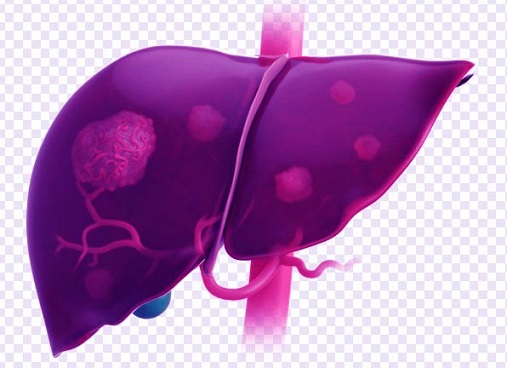Nikhil Prasad Fact checked by:Thailand Medical News Team Jul 20, 2024 9 months, 6 days, 1 hour, 48 minutes ago
Cancer Updates: Liver cancer, or hepatocellular carcinoma (HCC), is one of the deadliest forms of cancer worldwide, often leading to dire prognoses for patients. The relentless nature of HCC calls for innovative treatments and strategies to improve patient outcomes. A recent study by an international team of researchers has uncovered a promising approach to combat this aggressive disease. The research, involving institutions such as the University of Sassari in Italy, the University of Regensburg in Germany, the University of California, San Francisco, and the University of Hawaii Cancer Center, has identified a key enzyme that could be effectively targeted to slow down the growth of HCC. This
Cancer Updates news update explores these findings and their potential impact on liver cancer treatment.
 Inhibiting key enzyme fatty acid synthase shows promise for liver cancer
The Study: Unraveling the Role of Fatty Acid Synthase
Inhibiting key enzyme fatty acid synthase shows promise for liver cancer
The Study: Unraveling the Role of Fatty Acid Synthase
The primary focus of the study was on fatty acid synthase (FASN), an enzyme involved in the synthesis of fatty acids. While FASN is typically present at low levels in healthy adult tissues, its expression is significantly elevated in various cancers, including HCC. The study demonstrated that high levels of FASN are linked to poor patient outcomes in liver cancer, making it a crucial target for therapeutic intervention.
Mechanisms Behind FASN's Role in Cancer
The researchers discovered that FASN promotes liver cancer growth through its interaction with a protein called S-phase kinase-associated protein 2 (SKP2). SKP2 is essential for cell cycle progression and tumor growth as it degrades the tumor suppressor protein p27KIP1. When FASN levels are high, SKP2 levels also increase, leading to the degradation of p27KIP1 and allowing cancer cells to proliferate uncontrollably. This discovery sheds light on the metabolic and non-metabolic functions of FASN in cancer progression.
Key Findings
-Inactivation of FASN in Cancer Cells: Using small interfering RNA (siRNA) to inactivate FASN in liver cancer cell lines, the researchers observed a significant decrease in SKP2 levels and an increase in p27KIP1. This change resulted in reduced cancer cell growth, highlighting the potential of targeting FASN to inhibit tumor progression.
-Correlation in Human Samples: The study included an analysis of human liver cancer samples, which revealed a direct correlation between FASN and SKP2 levels. High levels of these proteins were associated with shorter patient survival times, reinforcing the link between FASN activity and poor prognosis in HCC.
-Mouse Model Studies: In mouse models genetically engineered to develop liver cancer, inactivating FASN completely prevented tumor growth. Additionally, introducing a non-degradable form of p27KIP1 or a dominant-negative form of SKP2, which inhibits its function, also halted cancer development. These findings underscore the critical role of the FASN-SKP2-p27KIP1 p
athway in liver cancer.
Detailed Examination of the Mechanisms
The study's in-depth analysis revealed that FASN's interaction with SKP2 is a pivotal mechanism driving HCC. FASN silencing led to the downregulation of SKP2 and the subsequent induction of p27KIP1. This effect was observed at the protein level, aligning with the known role of SKP2 in post-transcriptional regulation of p27KIP1. The researchers further validated these findings by overexpressing SKP2 in liver cancer cells, which counteracted the anti-growth effects of FASN inhibitors, thereby demonstrating the essential role of SKP2 in mediating FASN's oncogenic effects.
Implications for Treatment
The study's findings suggest that targeting FASN and the SKP2/p27KIP1 pathway could form the basis for a new therapeutic strategy for liver cancer. FASN inhibitors, such as the compound C75 used in the study, could be developed into drugs that specifically target cancer cells while sparing normal tissues.
Additionally, SKP2 inhibitors or drugs that stabilize p27KIP1 could be used in combination with FASN inhibitors to enhance their efficacy. This multi-target approach could potentially overcome the limitations of current treatments, which often provide only modest and temporary benefits for advanced HCC patients.
Future Directions
The promising results of this study pave the way for future research and clinical trials aimed at developing and testing FASN inhibitors and SKP2/p27KIP1 modulators. Further investigation is needed to understand the full spectrum of FASN's functions in cancer and to identify additional targets within the metabolic pathways that contribute to tumor growth. Collaborations between research institutions and pharmaceutical companies will be crucial to translating these findings into effective treatments for liver cancer patients.
Conclusion
This groundbreaking research represents a significant advancement in understanding the molecular mechanisms driving liver cancer. By targeting the FASN-SKP2-p27KIP1 pathway, new therapies could be developed to treat this aggressive disease more effectively.
The study's findings were published in the peer-reviewed journal Medicina, highlighting the potential of this approach to revolutionize liver cancer treatment.
https://www.mdpi.com/1648-9144/60/7/1160
For the latest
Cancer Updates, keep on logging to Thailand Medical News.
Read Also:
https://www.thailandmedical.news/news/the-phytochemical-sanguinarine-from-sanguinaria-canadensis-shows-promise-in-fighting-liver-cancer
https://www.thailandmedical.news/news/cd4-t-cells-play-a-role-in-the-development-and-progression-of-liver-disease-and-liver-cancer
